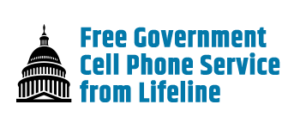How Free Government Phones Support People with Disabilities
How Free Government Phones Support People with Disabilities
Free government phones, primarily through programs like the Lifeline Assistance Program and the Affordable Connectivity Program (ACP), support people with disabilities by offering discounted or free phones and services that help improve accessibility, communication, and independence. Here’s how these programs specifically assist people with disabilities:
1. Accessibility Features:
- Lifeline and ACP phones often come with accessibility options like larger screens, voice commands, text-to-speech, and magnification features, making it easier for people with visual, hearing, or mobility impairments to use their phones.
- Some phones may have enhanced hearing aid compatibility (HAC), allowing individuals with hearing loss to use the device more comfortably.
2. Emergency Communication:
- People with disabilities may require immediate access to emergency services, doctors, caregivers, or family members. Free government phones provide reliable communication, which is critical for those with medical conditions or mobility limitations.
- In the event of an emergency, the phone can be used to call 911 or connect with important contacts, ensuring individuals can get help quickly.
3. Remote Health Management:
- Many people with disabilities rely on telehealth services, which involve consulting with doctors and healthcare providers remotely. Free phones with internet access (through the ACP) support telehealth consultations, allowing individuals to manage their healthcare without needing to leave home.
- Apps for medication reminders, health tracking, and connecting with support networks also become more accessible with government-provided phones.
4. Financial Relief:
- People with disabilities often face financial challenges, and the cost of communication can be a barrier. By offering free or low-cost phones and discounted service plans, the government helps remove financial obstacles, enabling people with disabilities to stay connected to essential services, family, and community.
5. Connection to Disability Support Services:
- Government-provided phones can serve as a lifeline to services specifically tailored for people with disabilities, such as advocacy groups, legal services, social workers, or disability-specific helplines.
6. Social Inclusion:
- Staying connected with friends, family, and social networks is important for emotional well-being. Free government phones help individuals with disabilities participate in social interactions, reducing feelings of isolation and improving mental health.
7. Adapted for Specific Needs:
- Some providers offer additional support or customized plans for individuals with specific disabilities. For example, a phone with a simpler interface might be offered to someone with cognitive impairments or limited tech skills, ensuring they can still benefit from the service.
8. Access to Emergency Alerts:
- Government phones provide access to emergency alerts and notifications, such as weather warnings or public safety announcements, which are crucial for people with disabilities who may be more vulnerable in emergencies.
These government programs help people with disabilities live more independently and stay connected, making it easier to manage daily tasks, access support, and communicate with others.



